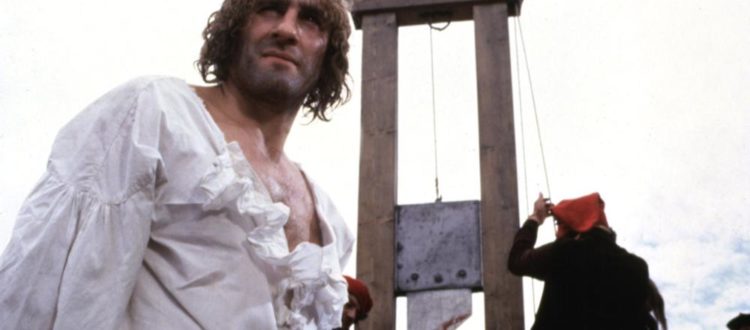DANTON
Polish-French co-production is set in Paris during the French Revolution in 1794. It is an adaptation of „Danton’s case” a drama by Stanislawa Przybyszewska. First, Andrzej Wajda staged it in Powszechny Theatre in Warsaw. Danton, the hero, one of the leaders of the rebellion, is accused of commiting treason against the state. On the background of historical events Wajda tells the story of the clash of the two rivals and two actors with different tempers – Danton, bravely preformed by a French actor, Gerard Depardieu and his political opponent, whose part was played by a Polish actor, Wojciech Pszoniak. Robespierre represents completely different ideas and he wants by all means to ruin Danton. Their fierce rivalry is contained mainly in their dialogue, however, the mise-en-scene is grandour as well. „Danton”can be seen as a unversal masterpiece about the consequences and responsibilities connected with ruling. On the other hand, it was clear that the director was appealing to the current political situation in Poland. He did not limit himself to passively illustrate historical events but in the ideas of the French Revolution he saw many similarities to the romantic traditions rooted in Polish culture.
About the director:
Andrzej Wajda (1926 – 2016) one of the most important artists of the Polish school of filmaking, director of over 40 films, four of which were nominated for the Best Foreign Language Movie Academy Award. In 2000 he won an Honorary Oscar Statuette for five decades of extraordinary film direction. He won many different awards at various festivals around Europe, in Cannes, Berlin, Venice. He made a lot of film adaptations of Polish classical literature, such as „Wesele” by Stanisław Wyspiański, „Pan Tadeusz” by Adam Mickiewicz, „Zemsta” by Aleksander Fredro. Starting with his debut film „Kanal” (1956) and finishing with his last film „Powidoki” (2017), he created very bold films closely bound with Polish history, and at the same time universal, that became a benchmark for the future generations of film makers.
His most important films:
• 1956 „Canal”
• 1958 „Ashes and Diamonds”
• 1972 „The Wedding”
• 1974 „The Promised Land”
• 1976 „Man of Marble”
• 1990 „Korczak”
• 2007 „Katyn”
• 2013 „Walesa. Man of Hope”

